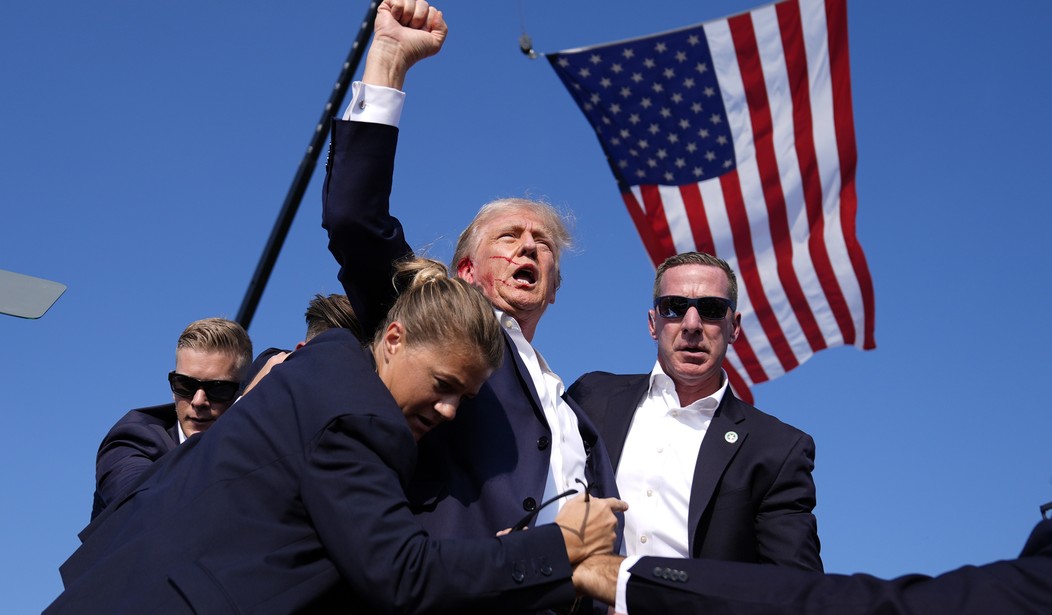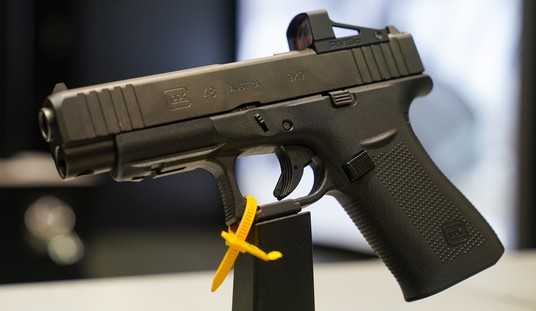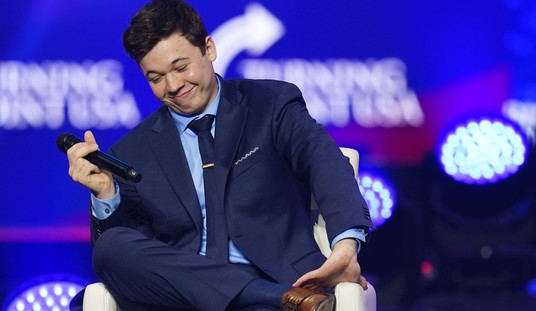Saturday's attempted assassination of former President Donald Trump has shaken the political world. The fact that the shooter missed only changed the degree by which it was rocked.
Thankfully.
However, a lot of people have a lot of thoughts about just how this will impact the election in November. After all, with the shift in the political landscape, it's not hard to figure that some things are going to be different in and of itself. Trump's defiance in the immediate aftermath of the shooting has also resonated with a lot of people, including yours truly.
But just how will it impact the election? Well, if we look to history as a guide, then as The Atlantic's Derek Thompson notes, no one really has a clue.
In the immediate aftermath of the failed attempt on Donald Trump’s life, pundits and politicians rushed to proclaim that they knew exactly how the awful event would affect American politics. Commentators on the left and right predicted on social media that “the election is over,” or that Trump was now fated to win in a landslide. “That’s the whole fucking election,” a Democratic House member toldSemafor. A senior House Democrat toldAxios on Sunday, “We’ve all resigned ourselves to a second Trump presidency.” Meanwhile, journalists foresaw an imminent escalation in violence and chaos. “We should all be terrified about what comes next,” Vox’s Zach Beauchamp wrote. On the front page of The New York Times, Peter Baker predicted that the assassination attempt was “likely to tear America further apart.”
Let me offer another interpretation of Saturday’s shocking event: Nobody knows anything. Anyone who claims to have already figured out precisely how Trump’s bloody ear will influence the 2024 election or strain the nation’s civic bonds is lying to you and to themselves. The history of failed assassination attempts in the United States and abroad offers only the murkiest indication of the path forward. “Would-be assassins are chaos agents more than agents that direct the course of history,” says Benjamin Jones, an economist at Northwestern University who has studied the effects of political assassination attempts over the past 150 years. These liminal figures—light-years from fame, yet inches from infamy—tend to change the world in minuscule ways, if they change anything at all.
The legacy of failed presidential assassination attempts in the U.S. should temper expectations that this past weekend was a world-historical event. Theodore Roosevelt was shot in 1912 campaigning for president in Milwaukee and, with Paul Bunyan heroism, continued his speech after being struck; he still lost. During a three-week span in 1975, two women tried and failed to shoot Gerald Ford. He lost his upcoming election, too. When Ronald Reagan was shot in 1981, a brief spike in his approval rating disappeared within a matter of months. It is hard to say that any of these failed attempts had a lasting effect on polls or politics in general.
Thompson goes on to note that none of these other events happened in the era of social media, which may change the equation a bit, though he appears to be skeptical.
However, I think he's also being a bit myopic about the rest of the political landscape.
Donald Trump's defiance, encapsulated in a photograph of him with an arm raised, which one Washington Post writer called a photo that could "change America forever," stands in stark contrast to Trump's opponent, President Joe Biden.
Prior to Saturday, while Biden's campaign has tried to focus on his record, including his push on gun control, the debate really revolved around Biden's fitness to hold office. Was he mentally capable of fulfilling the office of president? Or should he step aside so someone else could take the reins?
In light of what transpired in Pennsylvania, voters now have to consider two different people. One is a man who stood up after being shot and yelled for his supporters to "fight! Fight! Fight!" or the guy who looks to have pooped his pants at an international event and routinely needs to be escorted off of stages because he can't figure out where to go otherwise.
Had there been two otherwise similar candidates, at least with regard to age and mental faculties, I could agree that Trump's support here and now might be soft and the election was anything but a foregone conclusion.
That would be terrifying for gun rights as far too many people are already pushing gun control in the wake of the assassination attempt. They think that Republicans should be tripping over themselves to support gun control despite the attempt on Trump's life not really illustrating any of the things they think it does.
But this isn't one of those years, and if Trump continues his support of the Second Amendment in the wake of being shot himself, it will become that much harder to push for it no matter what happens in November. It also means that many lines of attack anti-gunners like Biden might use going forward--that Second Amendment supporters don't care or don't understand gun violence, for example--suddenly aren't viable.
The nation changed on Saturday. Some people are likely hoping that it won't.








Join the conversation as a VIP Member